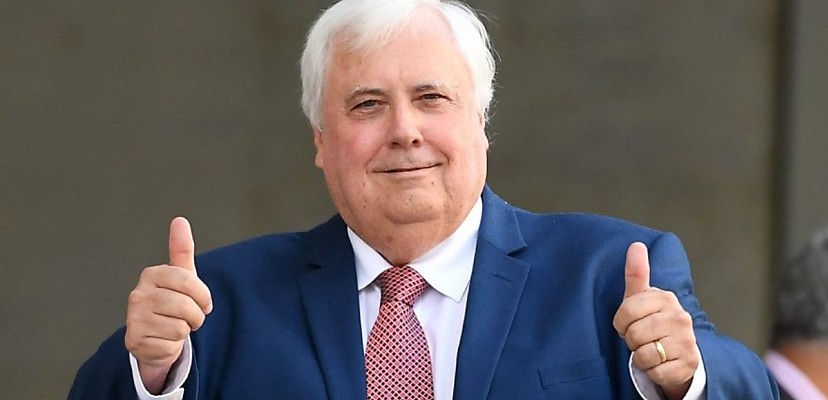Share this article on:
Powered by MOMENTUMMEDIA
Breaking news and updates daily.
A company owned by Australian business tycoon and chairman of the United Australia Party Clive Palmer has accused the federal government of attempting to hack the email inboxes of its lawyers in the midst of a $300 billion lawsuit, according to reports by The West Australian.

Zeph Investments, a Singapore-based company owned by Palmer, has engaged in three arbitrations against Australia (Zeph Investments v Australia) in a lawsuit with a combined value of $300 billion.
The latest arbitration, which is based on the Singapore-Australia Free Trade Agreement, relates to federal government measures that Zeph Investments believes interfered with a Queensland coal mining project. The first arbitration was similar, regarding a West Australia project, while the second arbitration was also related to the Queensland project.
Now, Palmer’s company is saying that the federal government attempted to hack the email accounts of its lawyers.
According to The West Australian, the allegations made by Zeph Investments are based on email requests sent to its lawyers asking for “single-use codes” to access their Microsoft accounts. These requests reportedly originate from Poland.
Additionally, the Palmer-owned company said its lawyers “may be [being] monitored by Australian intelligence agencies”, referring to the 2004 incident in which Australia secretly watched and spied on East Timor during Timor Sea gas and oil negotiations.
The allegations were dismissed by Gabrielle Kaufmann-Kohler, tribunal president of the Permanent Court of Arbitration.
In addition to the hacking claims, Zeph Investments attempted to keep Labor MP Josh Wilson quiet regarding the trade rule on which its lawsuit against Australia is based.
Palmer’s company has demanded that any “officers and representatives” of the Commonwealth refrain from making public remarks regarding the lawsuit, the investor-state dispute settlement (ISDS) system or the tribunal.
Wilson had previously made two speeches to Parliament in March and June last year, in which he called the ISDS “a dodgy international tribunal system”, adding that multinational companies should not be able to sue governments through it.
Zeph Investments has since claimed that these speeches attacked the ISDS and undermined the lawsuit’s integrity.
Kaufmann-Kohler also dismissed these claims.
“Mr Wilson’s remarks, critical of ISDS as they may be, are an expression of Australia’s constitutional democracy,” she wrote, adding that Wilson’s comments were not made on behalf of the Commonwealth.
Wilson has since reiterated that the ISDS is dodgy and stands by his earlier comments.
“I remain of the view that ISDS mechanisms present a serious risk to the wellbeing and best interests of the Australian community, and I am glad the tribunal has recognised my right to make that criticism as part of a proper democratic debate,” he said on Tuesday (13 February).
“People should remember that Mr Palmer is seeking to use ISDS mechanisms to sue Australia for more than $340 billion, while at the same time suggesting that I should stay silent. I won’t do that.”
Despite throwing out Zeph Investments’ claims, Kaufmann-Kohler suggested that Zeph may be granted a confidentiality order to restrict information about the arbitration being disclosed by the government.

Be the first to hear the latest developments in the cyber industry.